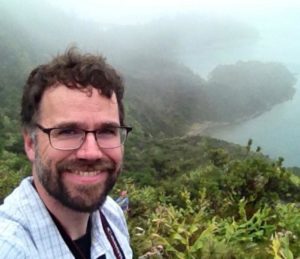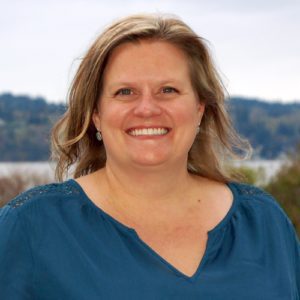At our annual Cherry Point Science Forum, we invite local researchers to talk about amazing science happening at Cherry Point in our backyard and the Salish Sea at large.
This year’s forum will include speakers presenting on marine mammals and the implications of the summer heat wave along with longer term patterns of environmental and ecological change in our coastal marine ecosystems. The Cherry Point Science Forum is free and open to the public.
Located in Whatcom County, the Cherry Point Aquatic Reserve is one of eight Aquatic Reserves in the state. Established by DNR on state-owned aquatic lands in Puget Sound, Aquatic Reserves include important biodiversity and aquatic habitat critical to Salish Sea health.
Cherry Point Forum presentations
-Dr. Christopher Harley, Professor at the University of British Columbia, Department of Zoology.
“Death in the afternoon: climate change, heatwaves, and seashore life in the Salish Sea.” The record-breaking western heatwave in June 2021 killed billions of sea creatures in the Salish Sea. Dr. Harley will discuss the implications of this event along with longer term patterns of environmental and ecological change in our coastal marine ecosystems.
-Casey McLean, Executive Director and Veterinary Nurse at SeaLife Response, Rehabilitation, and Research (SR3).
“New Hospital; New Hope for Marine Wildlife.” SR3’s successful first year of operating the first marine mammal rehabilitation center in the Pacific Northwest. SR3’s team disentangles sea lions and large whales from marine debris, responds to stranded or injured marine wildlife, studies cetacean health with an emphasis on resident killer whales, and works with tribes and other local communities to support wildlife health and community involvement.
About the speakers:
 Dr. Christopher Harley is interested in why plants and animals live where they live, and how their distributions will shift as a result of global climate change. He studies how abiotic forces, such as temperature and ocean acidification, and biological relationships, such as predation, competition, and facilitation, structure coastal marine communities.
Dr. Christopher Harley is interested in why plants and animals live where they live, and how their distributions will shift as a result of global climate change. He studies how abiotic forces, such as temperature and ocean acidification, and biological relationships, such as predation, competition, and facilitation, structure coastal marine communities.
 Casey McLean is a licensed veterinary technician who has a degree in marine biology and a long-standing passion and experience in marine animal medical care, rehabilitation, and conservation. She has worked in areas of sea turtle rehabilitation, wildlife rehabilitation, and marine mammal rehabilitation for over 12 years. She is an active member of the Marine Mammal Stranding Network in the Puget Sound and works on a variety of marine animals including stranded seal pups, sea otters, and sea lions. Casey is also a trained oil-spill responder.
Casey McLean is a licensed veterinary technician who has a degree in marine biology and a long-standing passion and experience in marine animal medical care, rehabilitation, and conservation. She has worked in areas of sea turtle rehabilitation, wildlife rehabilitation, and marine mammal rehabilitation for over 12 years. She is an active member of the Marine Mammal Stranding Network in the Puget Sound and works on a variety of marine animals including stranded seal pups, sea otters, and sea lions. Casey is also a trained oil-spill responder.
Please RSVP here!
For more information, contact Eleanor Hines at eleanorh@re-sources.org.
